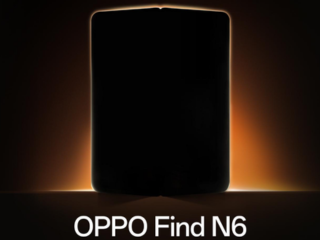- Home
- Apps
- Apps Features
- FreshMenu Believes Content Can Drive Sales, Says It's Profitable on a Per Order Basis
FreshMenu Believes Content Can Drive Sales, Says It's Profitable on a Per-Order Basis

Food delivery has seen its ups and downs over the last few years, with a spate of companies coming up, and then many dying just as quickly. In recent weeks, we’ve seen Uber expand its UberEATS program in India, and Ola has partnered with Zomato, but overall, food delivery remains a challenging business to be in.
At just about three years old, FreshMenu is already part of the old guard - most people were writing off the company as dead back in 2015, but fresh funding in early 2016 helped secure the company’s future, and today, it's become profitable in Bengaluru, says FreshMenu founder and CEO Rashmi Daga. In a chat with Gadgets 360 Daga explains how content can drive commerce, and why competition is good for the industry.
But we start by looking back at 2015, Daga says: "Those were terrible times. Reporters would call and say, 'oh, when are you shutting down?' And if I said that we are doing well and we are funded and not shutting down, they would insist, 'no we heard you are shutting down.'"
"It was tough for the industry, because there were a couple of startups which did shut down, [and] TinyOwl was going through that kind of phase, TinyOwl was - that was a lot of money down, I'm sorry to say," adds Daga. "But this year, things have changed. The people [companies] who have emerged have settled down. In large cities, we need delivered food, there was no option."
![]()
Freshmenu Founder and CEO Rashmi Daga
Photo Credit: FreshMenu
Content drives commerce
Interestingly, one of the things that FreshMenu sees as important today is the creation of content - to the point of launching a magazine called Food for Thought last week. Aside from this, the company has also been creating a lot of videos, and all of this is part of a larger content play.
"Content as a strategy is something that we are definitely building on also," says Daga, adding, "we've made a lot of brand films lately, and that goes with the magazine as well."
FreshMenu is available through its own app, but also on aggregators such as Zomato, Swiggy, and even Google's Areo. "We are present on all the content aggregators, and we see them as partners from a brand point of view," says Daga. FreshMenu's own app is the main focus though, and content is one of the ways to help it stand out, she says.
"Along with the magazine launch, we are integrating more content around food on our app," says Daga. "Users want to not just order food but also learn more about food."
![]()
Photo Credit: FreshMenu
By the numbers
FreshMenu started off in Bengaluru, and today it's grown to parts of Mumbai and parts of Delhi-NCR as well. Daga says that when the company launched in 2014, it was clear that there was scope for disruption around how people order, what they want to eat, the price points, and reliability.
"We made a lot of progress along those parameters, but still baby steps for us around food, though are hands are full around a variety of things," she says. "We do around 12,000 to 13,000 orders a day, around the country."
"A large part of the business comes from repeat customers," she says, adding, "People who start trying it out become regulars. Eighty percent of this [FreshMenu's business] is Bangalore."
What's perhaps more important though is how it measures up year on year. According to Daga, FreshMenu has grown 2.5x in the last 12 months. "It's big, and it's on the back of the same footprint, not on the back of opening more geography, so it is of course better for us, as the infrastructure doesn't go up," adds Daga.
As of now, the company is still not profitable overall, although this was one of Daga's targets for 2017. However, she's unfazed, and says that GST will help accomplish this more easily now.
"[The] company is not profitable right now, but Bangalore [Bengaluru] as a city is, and at every order level [FreshMenu] is profitable," explains Daga. "We're very close to it now, especially with GST benefits."
"As a company in multiple cities across multiple states, having a single tax structure will make compliance much more convenient and simpler," she adds. "With a common kitchen things like input credits simplify, and although there is some teething trouble, it will work out."
![]()
Photo Credit: FreshMenu
Too many cooks?
Swiggy and Zomato are exploring the "cloud kitchen" as a way to improve their business, though the latter is implementing it in a unique way, as an infrastructure play to enable others to build out delivery services. Swiggy is taking the more traditional route, which FreshMenu started doing in 2014.
Daga however says that competition isn't a concern, as food is a big enough industry, and having more people at this stage means that you have more options to reach the customer. Speaking about Google's Areo, Daga says that it's been "bringing some orders for sure, it's picking up."
"We had access to Areo early on, and I know that the platform is going - knowing Google, their understanding of location, maps, hyperlocal, they are going to be a big player in this space," says Daga.
For FreshMenu, a big part of the play is in data and analysis, Daga adds. The company has been offering a daily menu with some items lasting for longer on the menu if the demand is there, and Daga says that there is regular A/ B testing of dishes, price points, and even packaging.
"Before we came in also there were more options," adds Daga. "Zomato is trying infra-services, Swiggy is doing cloud kitchen, and no comment on that but I don't think we are going to feel threatened by someone else. Our focus is on what we are doing for the customer, and how we will hold that together."
For details of the latest launches and news from Samsung, Xiaomi, Realme, OnePlus, Oppo and other companies at the Mobile World Congress in Barcelona, visit our MWC 2026 hub.
Related Stories
- Samsung Galaxy Unpacked 2026
- iPhone 17 Pro Max
- ChatGPT
- iOS 26
- Laptop Under 50000
- Smartwatch Under 10000
- Apple Vision Pro
- Oneplus 12
- OnePlus Nord CE 3 Lite 5G
- iPhone 13
- Xiaomi 14 Pro
- Oppo Find N3
- Tecno Spark Go (2023)
- Realme V30
- Best Phones Under 25000
- Samsung Galaxy S24 Series
- Cryptocurrency
- iQoo 12
- Samsung Galaxy S24 Ultra
- Giottus
- Samsung Galaxy Z Flip 5
- Apple 'Scary Fast'
- Housefull 5
- GoPro Hero 12 Black Review
- Invincible Season 2
- JioGlass
- HD Ready TV
- Latest Mobile Phones
- Compare Phones
- Apple iPhone 17e
- AI+ Pulse 2
- Motorola Razr Fold
- Honor Magic V6
- Leica Leitzphone
- Samsung Galaxy S26+
- Samsung Galaxy S26 Ultra
- Samsung Galaxy S26
- Asus TUF Gaming A14 (2026)
- Asus ProArt GoPro Edition
- Apple iPad Air 13-Inch (2026) Wi-Fi + Cellular
- Apple iPad Air 13-Inch (2026) Wi-Fi
- Huawei Watch GT Runner 2
- Amazfit Active 3 Premium
- Xiaomi QLED TV X Pro 75
- Haier H5E Series
- Asus ROG Ally
- Nintendo Switch Lite
- Haier 1.6 Ton 5 Star Inverter Split AC (HSU19G-MZAID5BN-INV)
- Haier 1.6 Ton 5 Star Inverter Split AC (HSU19G-MZAIM5BN-INV)
-
 Oppo Find N6 Reportedly Appears at MWC 2026; Company Confirms March Launch in China
Oppo Find N6 Reportedly Appears at MWC 2026; Company Confirms March Launch in China
-
 Resident Evil Requiem Becomes Highest User Rated Game of All Time on Metacritic
Resident Evil Requiem Becomes Highest User Rated Game of All Time on Metacritic
-
 MWC 2026: Tecno Camon 50 Ultra 5G Unveiled With 6,500mAh Battery, 50–Megapixel Camera
MWC 2026: Tecno Camon 50 Ultra 5G Unveiled With 6,500mAh Battery, 50–Megapixel Camera
-
 Vivo Y21 5G With Dimensity 6300 Chip Listed on Cellular Operator’s Website Ahead of Launch
Vivo Y21 5G With Dimensity 6300 Chip Listed on Cellular Operator’s Website Ahead of Launch










